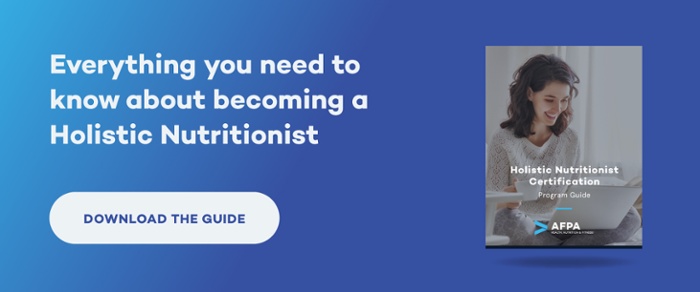Cultural competence is essential in nutrition coaching because it helps to ensure that clients receive culturally appropriate and effective care. With increasing awareness of cultural diversity, it is important for nutrition coaches to understand and respect unique cultural beliefs, attitudes, and practices related to food and nutrition.
Cultural competence, together with cultural humility, allows coaches to tailor their approach and communication style to meet the specific needs of each client, improving their overall satisfaction with the coaching experience and increasing the likelihood of success in reaching their nutrition goals.
Furthermore, cultural competence and humility reduce the possibility of cultural miscommunication, which can hinder the effectiveness of coaching and potentially cause harm to clients. For instance, if a nutrition coach lacks training in cultural competence and humility, they may not comprehend the significance of certain foods in a client’s culture or they might form opinions about a client’s eating practices based on cultural generalizations. This could make the client feel disrespected, unappreciated, and disengaged from the coaching experience.
This article focuses on how by promoting cultural competence and cultural humility in nutrition coaching, coaches can improve the quality of care they provide, increase client satisfaction, and promote positive outcomes for clients from diverse cultural backgrounds.
Cultural Competence and Cultural Humility in Nutrition Coaching
What is Cultural Competence?
Cultural competence refers to the ability to effectively interact and work with people from diverse cultural backgrounds. It involves acquiring knowledge about different cultures, recognizing and challenging personal biases, and adapting behavior and communication styles to meet the needs of individuals from different cultures.
People often relate cultural identity with nationality or ethnic identity. However, let’s take a moment to examine what cultural identity really is. Cultural identity is a feeling of belonging in a group of people who share a key aspect of their identity, such as place of birth, language, cuisine, values, religion, social behaviors, history, or other components.
In that sense, a few things are true:
- Different spheres hold space for different cultures. For example, every family, linguistic group, ethnicity, town, community, neighborhood, school, place of work, and nation has its own culture.
- Based on the explanation above, a person usually identifies with many cultures simultaneously. Thus, cultural identity is complex.
- Culture is constantly changing, so an outsiders’ knowledge of a culture at one point may not continue to be true in the future.
Learn How to Become a Certified Holistic Nutritionist in Less Than 6 Months
What is Cultural Humility?
When considering cultural competence and humility in connection to health professions, they are related but distinct concepts.
Cultural humility refers to the recognition of one’s own limitations and a commitment to continuous learning and self-reflection in cross-cultural interactions. Cultural humility involves approaching others with respect and a willingness to listen, learn, and understand their perspectives and experiences. Because culture is complex and ever-changing, cultural humility is a mindset that can help keep people open and willing to learn.
In the context of nutrition coaching, cultural competence is about having the knowledge and skills necessary to effectively work with clients from diverse cultural backgrounds, while cultural humility is about approaching these interactions with openness, respect, and a willingness to learn. Both cultural competence and cultural humility are important for promoting cultural awareness and sensitivity in nutrition coaching.
Understanding Personal Biases and How They Impact Coaching
Personal biases can have a significant impact on the effectiveness of nutrition coaching. Biases can influence the way a holistic nutrition coach communicates with clients, the recommendations they make, and the way they understand and respond to clients’ needs.
More specifically, personal biases can impact nutrition coaching in the following ways:
- Stereotyping: Generalizing about certain groups of people based on cultural, racial, ethnic, or socio-economic background can lead to inaccurate assumptions and recommendations. For example, making assumptions about what a person eats or does not eat based on their ethnicity or race is stereotyping. To prevent stereotyping, 1) recognize when your mind is stereotyping based on the limited information you know about a person, 2) stop yourself from making assumptions, and 3) ask your client directly about their nutritional and eating habits and believe what they say.
- Cultural insensitivity: Lack of understanding or appreciation of other cultures can lead to miscommunication and a failure to address specific cultural needs. Listen to other perspectives, learn about nutritional and dietary norms from different perspectives, and stay current with cultural events and developments.
- Unconscious bias (implicit bias): Preconceived notions and beliefs can unconsciously impact the way a coach interacts with clients, which can result in missed opportunities to connect with and support clients. Because unconscious bias is, well, unconscious, we often don’t realize we have a bias until we witness it from our client’s perspective. When this occurs, work on being aware of the impact you had. Recognize and take ownership of your mistake. If the situation allows, ask questions, or do research on your own. After the fact, make reparations and commit to doing better the next time.
The Role of Continuous Learning and Self-Reflection
Cultural competency and cultural humility work together to allow you to continue to learn and grow as a person, community member, and coach. Here are some ways to improve your general cultural competence and humility:
- Reflect on your own cultural background and experiences.
- Seek out education and training on cultural competence and diversity issues.
- Seek feedback from people from different cultural backgrounds.
- Practice active listening and seek to understand other perspectives.
- Stay current with cultural events and developments.
- Be open to continuous learning and improvement.
- Evaluate your actions and attitudes and take responsibility for your impact on others.
Ways to Build Cultural Competence in Nutrition Coaching
Generate an interest in other cultural perspectives on nutrition and health
Food guidelines differ by country, as do nutrition education tools equivalent to the US MyPlate. These depend on cultural norms surrounding cuisine, beliefs and customs related to food, history, ecology and food availability, and even the power of food industries and lobbying processes.
For example, dairy has a prominent place in the US MyPlate, but dairy is not part of the equivalent of those food guidelines in most countries around the world. This has to do with the strength of dairy industries in each country, the relevance of dairy foods in the food culture, and the susceptibility of populations, such as indigenous populations, to be lactose intolerant as adults. Calcium continues to be important for nutrition, but other populations get it through leafy greens, tortillas, tofu, nuts and seeds, and other sources.
One way to build cultural competence is to de-center your country’s food guidelines and nutrition education tools and remind yourself that these are built for one specific population and should not be generalized for all. That mindset will help you be more curious about different nutrition coaching processes that will best fit your diverse clientele’s needs.
Learn about the cultural backgrounds of clients
Most nutrition coaches engage with clients by asking about their background, habits, and customs. You can continue to do so with a more focused cultural eye. In intake forms and interviews throughout your coaching process, you can include specific questions about lifestyle and diet as related to culture. In general, specific questions are more effective than general ones.
For example, rather than asking “What are some cultural food practices you carry out at home?”, which can cause confusion since not everyone knows what cultural food practices are, you can ask, “Are there any yearly festivities or events you engage in throughoutthe year?” Then you can ask follow-up questions like, “What sort of food is served at these events? What do you enjoy most about these events? Is keeping this tradition important to you?”
Personalize nutrition coaching plans by incorporating cultural practices and beliefs
Incorporating cultural practices and beliefs into nutrition plans is a key aspect of providing culturally competent nutrition care. Here are some steps you can take to integrate cultural considerations into your nutrition plans:
- Ask questions and listen: Ask your clients about their cultural background, traditional foods, and dietary practices. Listen to their perspectives and experiences to understand their unique needs and preferences.
- Respect cultural differences: Be respectful and non-judgmental of cultural practices and beliefs that may be different from your own. Avoid making assumptions and focus on building a trusting relationship with your clients.
- Encourage cultural foods: Encourage clients to include cultural foods in their diet and provide education on how these foods can fit into a balanced and healthy diet.
- Collaborate with clients: Work with clients to develop a nutrition plan that incorporates cultural foods and practices in a way that supports their health goals.
By incorporating cultural practices and beliefs into nutrition plans, you can provide more effective and culturally responsive nutrition care that considers the unique needs and preferences of your clients.
Stay current on cultural and nutritional trends
Staying current on cultural and nutritional trends is important for providing culturally competent and up-to-date nutrition care. Here are some steps you can take to stay informed:
- Read relevant research and articles: Stay informed by reading academic journals, trade publications, and other sources of information.
- Attend conferences and workshops: Attend professional development events and conferences focused on diversity, cultural competency, food behaviors, gastronomy, and nutrition.
- Network with colleagues: Connect with other nutrition coaches professionals and experts from around the world through professional organizations, social media groups, and networking platforms like LinkedIn.
- Engage with diverse communities: Participate in community events and engage with individuals from diverse backgrounds to learn about cultural practices and beliefs.
- Follow trusted sources on social media: Follow reputable organizations, experts, and influencers on social media to learn about and engage in discussions about on the latest cultural and nutritional trends.
By continuously educating yourself and staying informed, you can provide the most up-to-date and culturally responsive nutrition care possible.
Main Takeaways
Cultural humility and competence are crucial in providing effective and culturally responsive nutrition coaching. Cultural humility refers to the willingness to continuously learn and reflect on one’s own cultural biases and to approach interactions with clients from a non-judgmental and open-minded perspective, while cultural competence refers to the ability to understand and effectively work with individuals from diverse cultural backgrounds. Humility and competence work in conjunction to support clients effectively.
By incorporating cultural humility and competence into nutrition coaching, practitioners can build trust with clients from diverse backgrounds by showing respect for their cultural practices and beliefs, provide more effective and personalized nutrition coaching by taking into account clients’ cultural needs and preferences, and improve client satisfaction and outcomes by offering a culturally responsive approach that considers their unique needs and experiences.
In short, cultural humility and competence in nutrition coaching can help practitioners provide better support and improve the overall wellbeing of a wide range of clients.
If you’re interested in more on this topic, you can also learn about the importance of cultural humility for health coaches.
References
- https://www.ncbi.nlm.nih.gov/pmc/articles/PMC2690890/
- https://muse.jhu.edu/article/268076
- https://ww1.odu.edu/content/dam/odu/offices/reyes/docs/unconcious-bias-recognizing-personal-bias-and-how-it-impact-other.pdf
- https://www1.nyc.gov/assets/ochia/downloads/pdf/cultural_sensitivity_wkshp.pdf
- https://journals.sagepub.com/doi/abs/10.1177/1043659614524790?journalCode=tcna
- https://online.maryville.edu/blog/addressing-implicit-bias/
- https://news.cornell.edu/stories/2005/06/lactose-intolerance-linked-ancestral-struggles-climate-diseases





